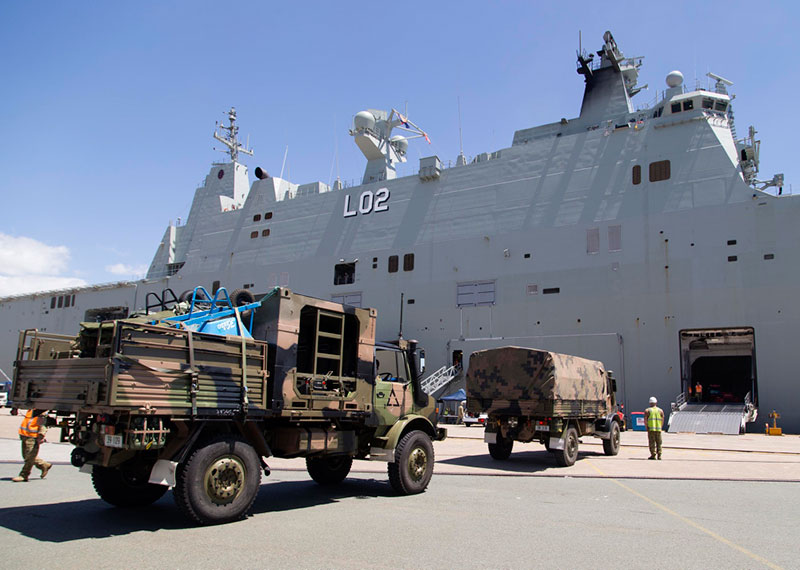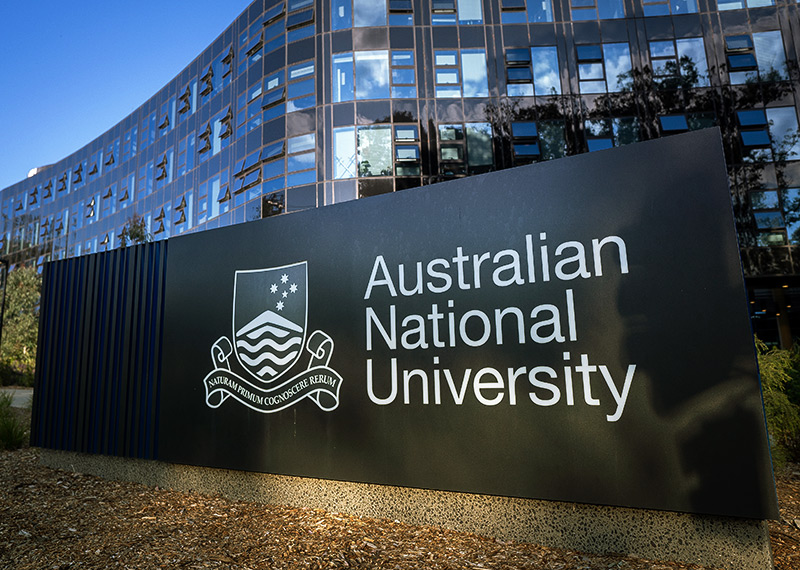Browse our range of reports and publications including performance and financial statement audit reports, assurance review reports, information reports and annual reports.
The report objective is to provide the Auditor-General’s independent assurance over the status of 30 selected Major Projects, as reflected in the Statement by the Chief Executive Officer Defence Materiel Organisation (DMO), and the Project Data Summary Sheets prepared by the DMO, in accordance with the Guidelines endorsed by the Joint Committee of Public Accounts and Audit.
The audit objectives were to examine the effectiveness of Defence’s management of the test and evaluation (T&E) aspects of its major capital equipment acquisition program; and to report on Defence’s progress in implementing T&E recommendations made in the Senate Foreign Affairs, Defence and Trade References Committee’s August 2012 report, Procurement procedures for Defence capital projects.
Please direct enquiries relating to reports through our contact page.
The audit objective was to assess the effectiveness of the Department of Health, Disability and Ageing’s administration of the Future Fit Program.
Please direct enquiries through our contact page.
The objective of the audit was to assess the effectiveness of the governance board in Hearing Australia.
Please direct enquiries through our contact page.
The objective of the audit was to assess the effectiveness of the establishment of the Workforce Australia Services panel.
Please direct enquiries through our contact page.
The audit objective was to assess the effectiveness of risk management, data monitoring and public reporting arrangements associated with the Australian Government's funding of public hospital services under the 2011 National Health Reform Agreement (NHRA).
Please direct enquiries through our contact page.
The objective of this report is to provide the Auditor-General’s independent assurance over the status of the selected Major Projects, as reflected in the Statement by the Secretary of Defence, and the Project Data Summary Sheets (PDSSs) prepared by Defence, in accordance with the Guidelines endorsed by the Joint Committee of Public Accounts and Audit.
The audit objective was to assess the effectiveness of the Department of the Prime Minister and Cabinet’s administration of the National Bushfire Recovery Agency functions including the National Bushfire Recovery Fund.
Please direct enquiries through our contact page.
The Auditor-General responded on 2 August 2021 to correspondence from the Hon Catherine King MP and Mr Andrew Giles MP dated 7 July 2021, requesting an audit into the entirety of the Morrison Government's $4.8 billion Urban Congestion Fund.
Please direct enquiries through our contact page.
The objective of this audit was to assess the effectiveness of the Department of Social Services' fraud control arrangements.
Please direct enquiries through our contact page.
The audit objective was to assess whether the Australian Government has established an appropriate framework for responding to crises.
Please direct enquiries through our contact page.
The objective of the audit was to examine the effectiveness of Services Australia’s arrangements for the management of contractors.
Please direct enquiries through our contact page.
The Auditor-General responded on 23 December 2020 to correspondence from the Hon Dr Andrew Leigh MP dated 8 December 2020, requesting that the Auditor-General conduct an investigation to examine the JobKeeper scheme. The Auditor-General provided a follow-up response on 8 February 2021, advising the Hon Dr Andrew Leigh MP that a performance audit Administration of the JobKeeper Scheme has commenced.
The Auditor-General responded on 26 March 2021 to follow-up correspondence from the Hon Dr Andrew Leigh MP dated 2 March 2021, requesting that the Auditor-General explore specific aspects of the JobKeeper scheme.
Please direct enquiries relating to request for audit through our contact page.
The objective of this audit was to examine whether the selected entities within the Attorney-General’s portfolio have implemented all agreed recommendations from parliamentary committee and Auditor-General reports within the scoped timeframe.
Please direct enquiries through our contact page.
The audit objective was to assess the effectiveness of the Australian National University’s governance and control framework.
Please direct enquiries through our contact page.
The audit objective was to assess the effectiveness of the Department of the Prime Minister and Cabinet’s administration of the IA framework to enable well-informed and transparent Australian Government decision-making.
Please direct enquiries through our contact page.
The objective of the audit was to assess the effectiveness of DEWR's administration of the JSKA in ensuring its optimal usage in achieving job seeker outcomes. The ANAO examined the following aspects of the JSKA: guidance provided to Job Network Members on its operation; identification and assessment of contract risks; management of contract risks and Job Network Member performance; claims and payments; encouraging economy; and performance information.
Major capital equipment contributes importantly to the capabilities of the Australian Defence Force (ADF) to achieve the Defence mission, that is, the defence of Australia and its national interests. The Defence Materiel Organisation (DMO) is the relatively new Defence organisation responsible for the acquisition and through-life support of Defence equipment and systems. DMO's stated purpose is to equip and sustain the ADF. In 2001-02, it will spend $2.9 billion on progressing some 270 major capital equipment acquisition projects. This preliminary study for the audit focused on DMO reporting on the status of major equipment acquisition projects.
The objective of this audit was to assess the effectiveness of the implementation of the government response to the Black Economy Taskforce report.
Please direct enquiries through our contact page.
The objective of the audit was to examine the effectiveness of Navy’s strategy for recruiting and retaining personnel with specialist skills. The effective delivery of Navy capability depends on Navy having available sufficient numbers of skilled personnel to operate and maintain its fleet of sea vessels and aircraft, and conduct wide‑ranging operations in dispersed locations. Without the right personnel, Navy capability is reduced. Navy’s budget for 2014–15 included $1.86 billion in employee expenses.
The audit concluded that, in its strategic planning, Navy had identified its key workforce risks and their implications for Navy capability. To address these risks Navy had continued to adhere to its traditional ‘raise, train and sustain’ workforce strategy; developed a broad range of workforce initiatives that complemented its core approach; and sought to establish contemporary workforce management practices. However, long‑standing personnel shortfalls in a number of ‘critical’ employment categories had persisted, and Navy had largely relied on retention bonuses as a short‑ to medium‑term retention strategy.
Navy had developed a broad range of workforce initiatives, some designed specifically to address workforce shortages in its critical employment categories. To date, Navy had primarily relied on paying retention bonuses and other financial incentives; recruiting personnel with prior military experience to work in employment categories with significant workforce shortfalls; and using Navy Reserves in continuous full time roles. Ongoing work was required for Navy to firmly establish a range of promising workforce management practices, including providing the right training at the right time; more flexible approaches to managing individuals’ careers; and improving workplace culture, leadership and relationships. More flexible and tailored workforce management practices could help address the underlying causes of workforce shortfalls, particularly when the traditional approaches were not gaining sufficient traction.
The ANAO made two recommendations aimed at Navy: drawing on external human resource expertise to inform the development and implementation of its revised workforce plan; and evaluating the impact of retention bonuses on the Navy workforce to determine their future role within its overall workforce strategy.
Please direct enquiries relating to reports through our contact page.
The audit objective was to assess the Office of the Commonwealth Ombudsman's effectiveness in managing complaints.
Please direct enquiries through our contact page.
The objective of the audit was to assess the effectiveness of the Department of Social Services’ (DSS’s) and Services Australia’s management of the accuracy and timeliness of welfare payments.
Please direct enquiries through our contact page.
The objective of this report is to provide the Auditor‐General’s independent assurance over the status of the selected Major Projects. The status of the selected Major Projects is reported in the Statement by the Secretary of Defence and the Project Data Summary Sheets (PDSSs) prepared by Defence, in accordance with the Guidelines endorsed by the Joint Committee of Public Accounts and Audit (JCPAA).
Please direct enquiries relating to reports through our contact page.
The objective of this audit was to assess the effectiveness of the National Indigenous Australians Agency’s (NIAA’s) processes to design and transition to a new remote employment program.
Please direct enquiries through our contact page.
The objective of this audit was to assess the effectiveness of the Department of Agriculture and Water Resources' implementation of the new biosecurity legislative framework.
Please direct enquiries relating to reports through our contact page.
The ANAO conducted separate audits of the Indigenous Advancement Strategy (IAS) Children and Schooling program and the Safety and Wellbeing program, the findings and conclusions of which are presented in this report. The objective of the audits was to assess the effectiveness of the Department of the Prime Minister and Cabinet’s and the National Indigenous Australians Agency’s administration of the IAS Children and Schooling and the Safety and Wellbeing programs.
Please direct enquiries through our contact page.
The Auditor-General responded on 1 July 2021 to correspondence from the Hon Brendan O'Connor MP and Mr Tim Watts MP dated 5 June 2021, requesting that the Auditor-General consider initiating a performance audit into the use of provisional ICT accreditation within Defence.
Please direct enquiries relating to requests through our contact page.
The audit objective was to assess the effectiveness of the management of the Australian Public Service (APS) workforce in implementing the Australian Government’s COVID-19 priorities.
Please direct enquiries through our contact page.
The Auditor-General responded on 12 August 2020 to correspondence from Senator Rachel Siewert dated 9 July 2020, requesting that the Auditor-General examine the National COVID-19 Coordination Commission as part of the audit program of the Government’s COVID-19 response.
Please direct enquiries relating to requests through our contact page.
The objective of this audit was to examine whether the Humanitarian Settlement Program (HSP) is being delivered effectively.
Please direct enquiries through our contact page.























